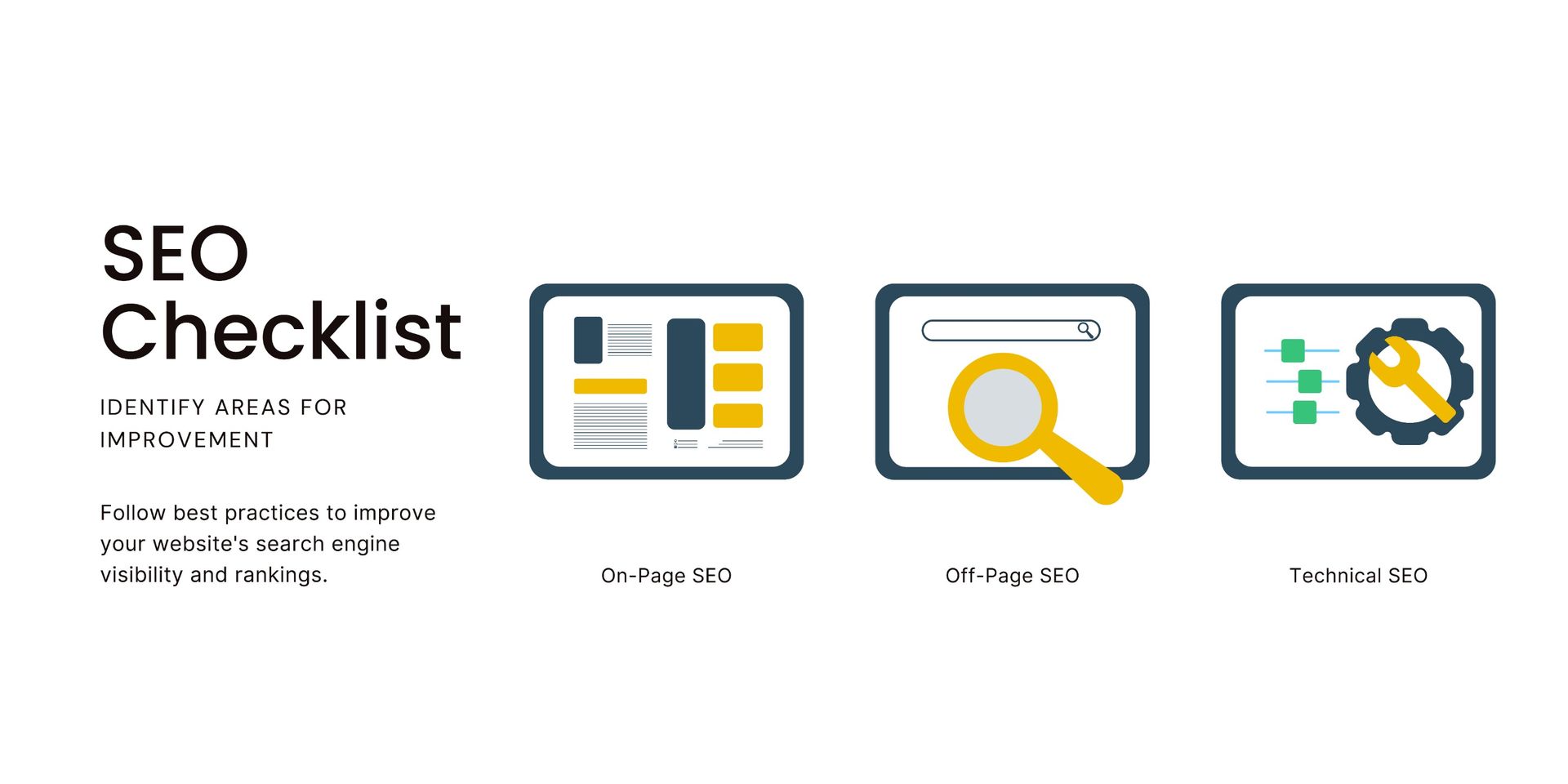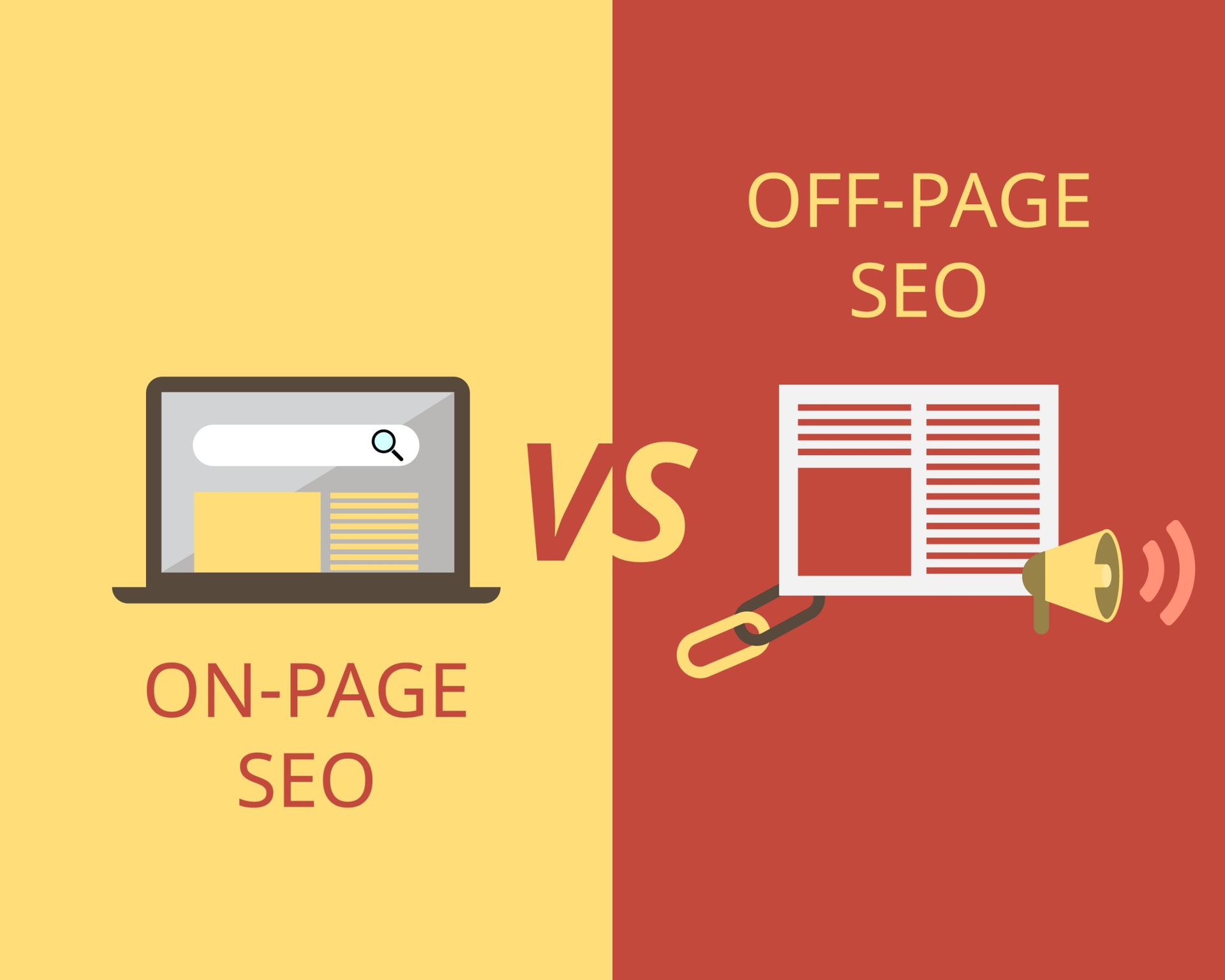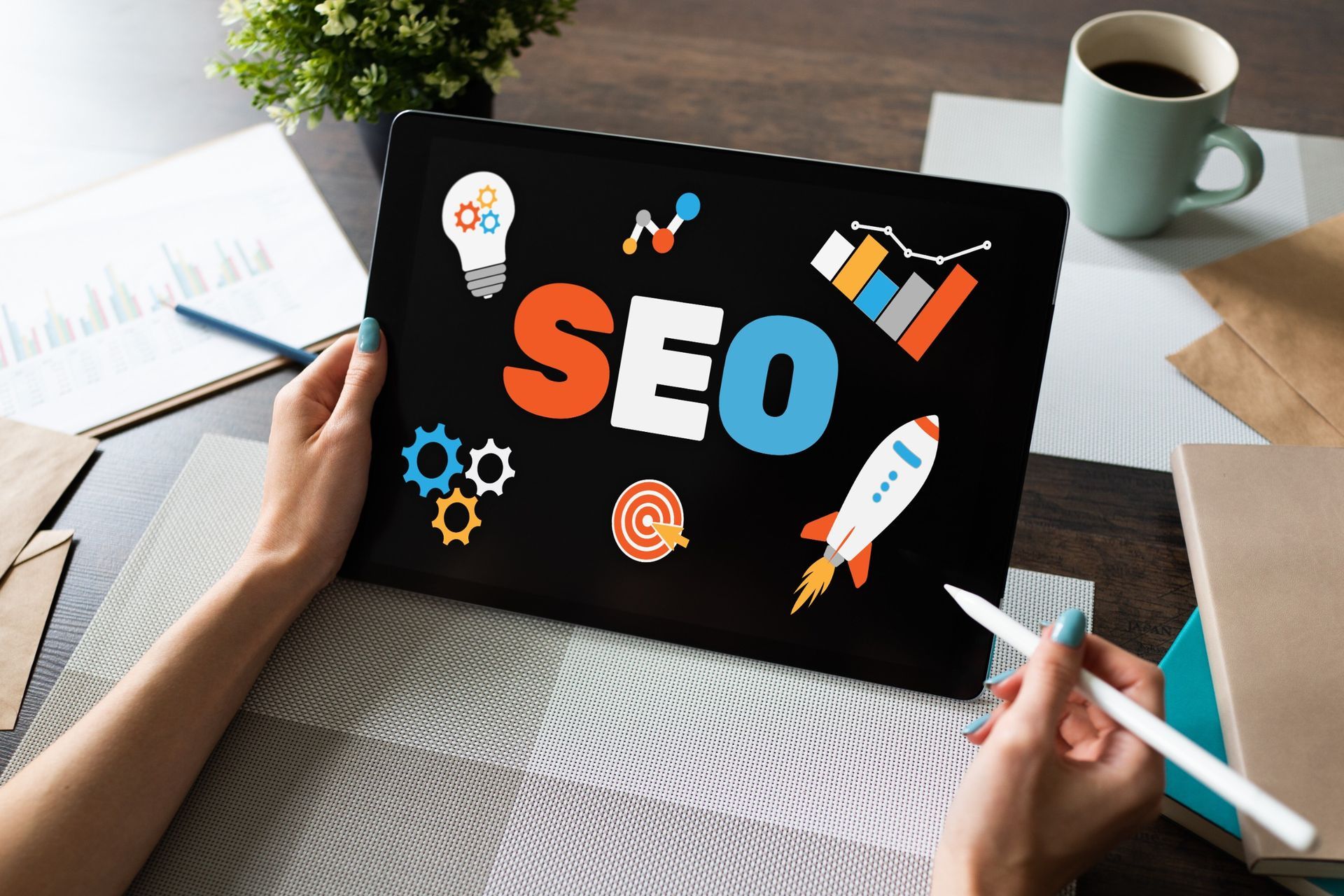The Ultimate Guide to On-Page SEO in 2024
The Ultimate Guide to On-Page SEO in 2024
We live in a world where the front door to your business isn't just a physical structure on Main Street – it's a virtual portal, and the key to that door is hidden in the bytes and pixels of search results. Search Engine Optimization (SEO) has become the great equalizer of digital marketing, making it possible for businesses of any size and scope to stand out in a crowded online marketplace.
In this in-depth exploration, we'll unravel the intricacies of on-page SEO, focusing on what's working now in 2024 and how businesses like yours can leverage the latest strategies to climb the search engine rankings.
The Evolution of SEO and Its Unwavering Importance
Search engines are constantly evolving, updating their algorithms to provide more accurate results and to thwart the efforts of those who might seek to game the system. Now more than ever, the search landscape demands a nuanced approach to SEO that goes beyond the technical and ventures into the realm of user experience and content quality.
Business owners can no longer afford to ignore the importance of on-page SEO. It's not just a technical checklist but a strategic push that helps your website connect with the right audience and ensures a seamless user experience.
Key Elements of On-Page SEO
- Title Tags and Meta Descriptions: Every page on your website should have a unique title tag and meta description that accurately describes the content. Utilizing relevant keywords in these tags helps search engines understand the page's content and can improve click-through rates from search engine results pages (SERPs).
- High-Quality Content: Content is king in the realm of SEO. Providing valuable, accurate, and engaging content not only satisfies your audience but also signals to search engines that your site is a reputable source of information. Use of targeted keywords within your content, while ensuring readability and engagement, is essential.
- Optimized Headings and Subheadings: Proper use of H1, H2, and subsequent headings helps structure your content for both readability and SEO. Including keywords in these headings can further optimize your content for search engines.
- Internal Linking: Creating links between the pages of your website enhances navigation and helps search engines crawl your site more effectively. This strategy also increases the time visitors spend on your site, which is a positive signal to search engines.
- Mobile Responsiveness: With the increasing prevalence of mobile browsing, having a website that adjusts seamlessly to different screen sizes is not just beneficial, it's essential. Mobile responsiveness is a significant factor in Google's ranking algorithms.
- Page Load Speed: A fast-loading website improves user experience and reduces bounce rates. Search engines, particularly Google, place a high value on page speed when determining rankings.
- Image Optimization: Along with their decorative purpose, images can be optimized for SEO. Use descriptive, keyword-rich file names and alt tags for every image on your site to improve its visibility in search engine image results.
By focusing on these key elements, businesses can significantly improve their on-page SEO performance, making their website more visible and attractive to their desired audience in 2024.
Latest Trends in On-Page SEO
- Voice Search Optimization: With the rise of voice-activated assistants, optimizing for voice search has become critical. This involves focusing on natural language and question-based queries, as users tend to speak their searches differently than they type them.
- Artificial Intelligence in SEO: AI is revolutionizing how we understand user intent and behavior, allowing for more personalized and effective SEO strategies. Incorporating AI tools can help predict trends, analyze vast amounts of data, and optimize content in real-time.
- Structured Data Markup: Leveraging schema markup helps search engines better understand your content and improves the chances of your site appearing in rich snippets and enhanced search results. This can significantly increase visibility and click-through rates.
- E-A-T (Expertise, Authoritativeness, and Trustworthiness): Google emphasizes the importance of content quality and the credibility of the website publishing it. Demonstrating your site's expertise and authority within your niche can positively impact your rankings.
- Video Content Optimization: Video content is more popular than ever. Ensuring your video content is SEO-friendly—through optimized titles, descriptions, and tags, and providing a transcript—can improve your site’s visibility and engagement.
- User Experience (UX) Focus: SEO is evolving to place a greater emphasis on user experience, including site usability, navigation, and content layout. Websites that provide a superior user experience tend to rank higher in search results.
- Sustainable SEO Practices: With a growing emphasis on sustainability, eco-friendly websites and green hosting solutions are becoming more appealing. Sustainable SEO practices not only align with ethical values but can also resonate well with eco-conscious consumers.
Tools and Resources for Effective On-Page SEO
Navigating the complex world of on-page SEO requires the right set of tools. Here's a list of tools and resources that can enhance your on-page SEO efforts:
- Google Analytics: Essential for monitoring your website's performance, understanding your audience, and optimizing your SEO strategies based on actual data.
- SEMrush: Offers comprehensive SEO tools that allow you to conduct keyword research, track keyword rankings, perform site audits, and analyze competitor strategies.
- Moz Pro: Provides tools for keyword research, link building, site audits, and page optimization insights to help improve your website's visibility and ranking.
- Yoast SEO: A popular WordPress plugin that helps you optimize your website's content, titles, meta descriptions, and provides real-time content analysis to improve SEO.
- Ahrefs: Known for its backlink analysis tool, Ahrefs also offers a suite of tools for SEO auditing, content research, and keyword tracking.
- Screaming Frog SEO Spider: A desktop program that crawls websites' links, images, and codes to identify SEO issues and improve site visibility.
- Google Search Console: A free service offered by Google that helps you monitor, maintain, and troubleshoot your site's presence in Google Search results.
- Ubersuggest: A keyword tracking tool that offers keyword suggestions, SERP analysis, and insight into the strategies that are working for your competitors.
By integrating these tools into your SEO strategy, you can gain deeper insights into your website's performance, uncover opportunities for optimization, and stay ahead of the curve in the dynamic digital landscape of 2024.
Strategically Implementing On-Page SEO for Your Business
Knowing what to do is one thing, but execution is where the rubber meets the road. Here's a step-by-step guide to implementing on-page SEO effectively in your business:
- Start with a Site Audit: Use tools like SEMrush or Screaming Frog SEO Spider to conduct a thorough site audit. Identify technical issues, content gaps, and areas for optimization. This step sets the foundation for a successful SEO strategy.
- Optimize Your Content: Revise existing content and create new, valuable content focused on your target audience's needs. Incorporate keywords naturally, enhance readability, and ensure that each piece of content addresses specific user queries or pain points.
- Improve Site Structure and Navigation: Make your website easy to navigate for both users and search engines. A well-structured site with a logical hierarchy enhances user experience and helps search engines index your content more effectively.
- Focus on Mobile Optimization: With mobile traffic continuing to grow, ensure your website is fully responsive and loads quickly on all devices. Test your site's mobile usability with tools like Google's Mobile-Friendly Test.
- Enhance Page Speed: Utilize tools like Google PageSpeed Insights to identify and fix factors slowing down your site. This could include optimizing images, leveraging browser caching, and minimizing CSS and JavaScript.
- Implement Structured Data: Use schema markup to provide search engines with more information about your content. This can help your site appear in rich snippets and voice search results, improving visibility and click-through rates.
- Build a Robust Internal Linking Structure: Create links between your content pages to guide users and search engines through your site. This not only improves navigation but also boosts the authority and ranking of individual pages.
- Regularly Monitor Your SEO Performance: Set up tracking with Google Analytics and Google Search Console to monitor your site's traffic, rankings, and interactions. Continuously adjust your SEO strategy based on this data to achieve the best results.
- Stay Updated on SEO Best Practices: The world of SEO is constantly evolving. Keep abreast of the latest trends, algorithm updates, and best practices to ensure that your on-page SEO efforts yield the desired outcomes.
- Engage with Your Audience: Understand the importance of social signals in SEO. Encourage engagement through social media marketing, comments, and forums. A vibrant community can lead to increased site traffic and higher relevance in search rankings.
Benefits of a Holistic On-Page SEO Approach
A holistic approach to on-page SEO encompasses all aspects of your website. By creating a seamless experience focused on both humans and search engines, you can expect to see benefits such as:
- Increased Traffic: A well-optimized website ranks higher in search engine results, attracting more visitors. High-quality, relevant content ensures that this traffic is also targeted, bringing in users who are more likely to convert into customers or followers.
- Better User Experience: Focusing on on-page SEO improves the overall user experience. Websites that are easy to navigate, load quickly, and provide valuable content make visitors more likely to stay longer and explore more pages.
- Higher Conversion Rates: Optimizing for relevant keywords and creating content that addresses your audience's needs can lead to higher conversion rates. Visitors find precisely what they are looking for, making them more likely to take action, whether that's making a purchase or signing up for a newsletter.
- Enhanced Credibility and Trust: Websites that appear at the top of search results are often perceived as more credible and trustworthy by users. Implementing E-A-T principles (Expertise, Authoritativeness, Trustworthiness) also reinforces this perception, building confidence in your brand.
- Competitive Advantage: Employing a comprehensive on-page SEO strategy can give you a competitive edge in the market. Staying ahead of SEO trends and continually optimizing your site ensures you maintain or improve your search engine rankings, keeping you ahead of competitors.
- Sustainable Growth: Unlike paid advertising, the benefits of on-page SEO are more enduring. By investing in SEO, you're building a solid foundation that can support long-term, sustainable growth for your business or personal brand.
Conclusion: The Ongoing Journey of On-Page SEO
Staying abreast of the latest developments in on-page SEO is crucial for any business looking to thrive in the digital world. By remaining informed about best practices and continually refining your approach, your website can become a beacon for users seeking valuable and relevant information.
It's worth remembering that SEO is not a one-and-done task but an ongoing process that reflects the evolving nature of online content. As the digital ecosystem continues to change and grow, so too must your on-page SEO strategy.
Stay curious, keep learning, and adapt to the new challenges and opportunities that arise in the world of search. Your online presence—and your bottom line—will thank you for it.
Contact Us
To learn more about how Coldwater Marketing can elevate your small business's online presence, don't hesitate to get in touch. Our team is ready to assist you with your digital marketing needs and answer any questions you may have.
- Phone: (602) 610-1738
- Email: info@coldwatermarketing.com
We look forward to helping your business thrive in the digital marketplace!
Coldwater Marketing
We are the premier digital marketing solution in Avondale. Contact us today to get your free, no-obligation consultation!
Get In Touch
12368 W. Campbell Ave.,
Avondale, Arizona 85392
United States
Menu
Services
QWERTY FANATICS, LLC DBA Coldwater Marketing is an Equal Opportunity Employer. All qualified applicants will receive consideration for employment without regard to race, color, religion, national origin, sexual orientation, gender identity, gender expression, veteran status, sex, age or genetic information and will not be discriminated against on the basis of disability.*
IMPORTANT: Earnings and Legal Disclaimers
This site is not part of, or endorsed by, Facebook™, Google™, Snapchat™, Twitter™ or any social media platform in any way.
All product names, logos, and brands are property of their respective owners. All company, product and service names used in this website are for identification purposes only. Use of these names, logos, and brands does not imply endorsement.
FACEBOOK™ is a trademark of Meta Platforms, Inc. YOUTUBE™ and GOOGLE™ are trademarks of GOOGLE™, LLC. SNAPCHAT™ is a trademark of SNAP™, Inc. TWITTER™ is a trademark of TWITTER™, Inc.
All results stated above are not typical, I’m not implying you’ll duplicate them (or do anything for that matter). Any of my strategies and case studies are only estimates of what is possible. There is no assurance you’ll do as well or even close to as well as I have done or other clients. Results are based on many factors including luck, hard work, effort and years of hard work. We have no way of knowing how well you will do, as we do not know you, your background, your business model, or your work ethic etc. Therefore, we do not guarantee or imply that you will get better results or earn more money, that you will do as well, especially if the techniques are never implemented. If you rely upon our figures; you must accept the risk of not doing as well as we are a large established business developer over many years of research and work.
All products and services are for educational and informational purposes only. Use caution and seek the advice of qualified professionals. Check with your attorney, accountant or professional advisor, before acting on this or any information and ensure you are within all advertising and legal regulations. If advice concerning legal or related matters is needed, the services of a fully qualified professional should be sought out before any action is taken. All Mawer Capital information, products, and services are not intended for use as a source of legal or accounting advice. You should be aware of any laws which govern business transactions or other business practices in your country and state as they can differ greatly.
The information on this website and provided from or through this website is general in nature and is not specific to you the user or anyone else. You should not make any decision, financial, investment, trading or otherwise, based on any of the information presented in this video without undertaking independent due diligence and consultation with a professional broker or financial advisory. You understand that you are using any and all Information available on or through this video at your own risk.
Users of our products, services and website are advised to do their own due diligence when it comes to making decisions and all information, products, and services that have been provided should be independently verified by your own qualified professionals. Our information, products, and services on Mawer Capital should be carefully considered and evaluated, before reaching a decision on whether to rely on them. You agree that our company is not responsible for the success or failure of your decisions relating to any information presented by Coldwater Marketing or our company products or services.





